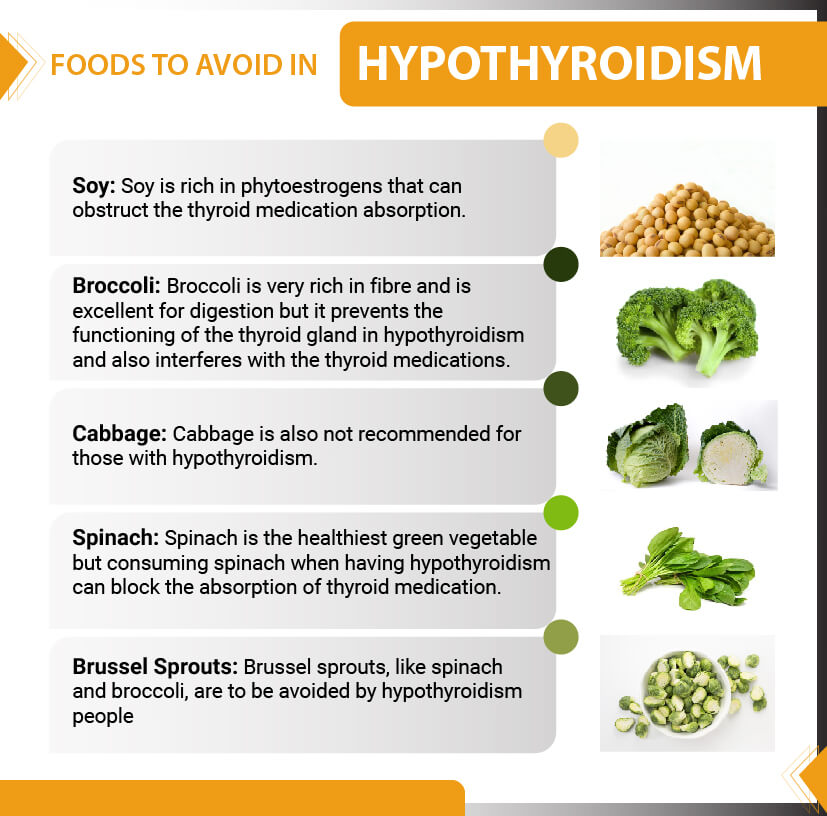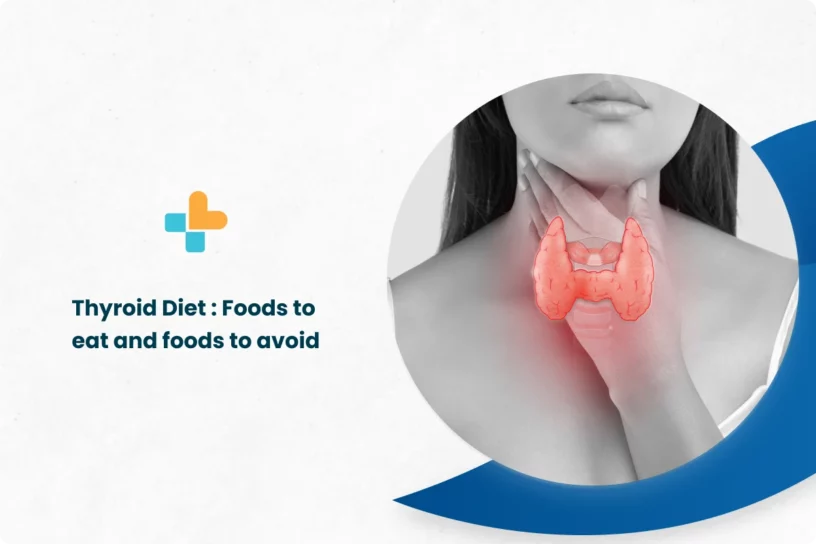Introduction
Thyroid is a gland located in the neck that produces hormones that regulate the body’s metabolism. When the thyroid gland produces too much or too little hormones, it can lead to a condition called hyperthyroidism or hypothyroidism. Symptoms of hyperthyroidism include weight loss, increased appetite, rapid heartbeat, and anxiety.
How does diet affect hyperthyroidism?
The foods we eat can have a significant impact on the functioning of the thyroid gland. Consuming certain foods can help to manage the symptoms of hyperthyroidism, while others can exacerbate them.
Foods to eat
Low iodine foods
Iodine is a mineral that is essential for the production of thyroid hormones. However, consuming too much iodine can worsen hyperthyroidism symptoms. Therefore, it’s essential to limit foods that are high in iodine, such as seafood, seaweed, and iodized salt.
Cruciferous vegetables
Cruciferous vegetables, such as broccoli, cauliflower, and kale, contain compounds that can interfere with the absorption of thyroid hormones. However, these vegetables are also rich in nutrients that are essential for overall health. So, it’s important to consume them in moderation.
Foods containing selenium
Selenium is an essential mineral that plays a vital role in thyroid health. Foods that are high in selenium include Brazil nuts, tuna, and turkey.
Foods containing iron
Iron is an essential mineral that helps to maintain the health of the thyroid gland. Foods that are high in iron include red meat, dark leafy greens, and fortified cereals.
Foods containing calcium and vitamin D
Calcium and vitamin D are essential for maintaining healthy bones and teeth. Foods that are high in these nutrients include dairy products, fortified orange juice, and fatty fish.
Spices
Spices such as ginger, turmeric, and cumin can be beneficial for managing symptoms of hyperthyroidism. They have anti-inflammatory properties that can help to reduce inflammation in the thyroid gland.
Foods to avoid
Iodine-rich foods
As previously mentioned, iodine can worsen symptoms of hyperthyroidism. Therefore, it’s essential to avoid foods that are high in iodine, such as seafood, seaweed, and iodized salt.
Soy
Soy contains compounds that can interfere with the absorption of thyroid hormones. Therefore, it’s essential to limit the consumption of soy products.
Gluten
For people with hyperthyroidism, gluten can be difficult to digest and can cause inflammation in the gut. It is best to avoid gluten-containing foods, such as wheat, barley, and rye.
Caffeine
Caffeine can cause an increase in heart rate and anxiety, which can worsen symptoms of hyperthyroidism. It’s essential to limit the consumption of caffeine-containing foods and beverages.
Fatty Foods
Fatty foods can cause inflammation in the body, which can worsen symptoms of hyperthyroidism. It is best to avoid fatty foods such as fried foods, butter, and processed meats.
Sugary Foods
Sugary foods can cause a spike in blood sugar levels, which can worsen symptoms of hyperthyroidism. It is best to avoid sugary foods such as candy, cookies, and cakes.
Processed Foods
Processed foods are high in sodium
and additives, which can worsen symptoms of hyperthyroidism. It’s best to avoid processed foods such as canned soups, frozen dinners, and processed meats.
Alcohol
Alcohol can cause an increase in heart rate and anxiety, which can worsen symptoms of hyperthyroidism. It’s essential to limit the consumption of alcohol.
Life Hacks to Manage Hypothyroidism Symptoms

Summary
Managing a healthy diet is crucial for managing the symptoms of hyperthyroidism. It’s essential to limit foods that are high in iodine, soy, gluten, caffeine, fatty foods, sugary foods, processed foods, and alcohol. Instead, focus on consuming low iodine foods, cruciferous vegetables, foods containing selenium, iron, calcium, and vitamin D, and spices that have anti-inflammatory properties. Additionally, it’s important to maintain a healthy lifestyle, including regular exercise, adequate sleep, and stress management. Consult with a healthcare professional to create a personalized plan that suits your needs.
FAQs:
Which fruit is good for thyroid?
- There is no specific fruit that is particularly beneficial for the thyroid. However, fruits that are high in antioxidants, such as berries and citrus fruits, may help to reduce inflammation in the body and support overall health.
Is milk good for thyroid?
- Milk is a good source of calcium and Vitamin D, which are important for maintaining healthy bones and teeth. However, for people with hyperthyroidism, consuming large amounts of dairy products can worsen symptoms. It’s important to consume dairy products in moderation and to consider alternative sources of calcium and vitamin D.
Foods to avoid in thyroid?
- Foods to avoid in thyroid include those that are high in iodine, such as seafood and seaweed, soy, gluten-containing foods, caffeine, fatty foods, sugary foods, processed foods and alcohol.
How to heal thyroid?
- Healing the thyroid involves a combination of approaches, including managing a healthy diet, getting regular exercise, adequate sleep, and stress management. It’s also important to work with a healthcare professional to create a personalized plan that suits your needs. In some cases, medication may also be necessary to manage symptoms and restore normal thyroid function. It is also important to avoid exposure to environmental toxins, such as pesticides and heavy metals, as they can damage the thyroid. It is important to get regular check-ups and follow the treatment plan advised by the healthcare professional.
If you need additional resources or would like to speak with a professional, feel free to contact us right away at +91 636-610-0800 or book an appointment on our website. Our expert team is here to assist and support you every step of the way.
Our Hospital Locations
General Surgery Hospitals in Chandigarh | General Surgery Hospitals in Bangalore | General Surgery Hospitals in Jaipur | General Surgery Hospitals in NCR | General Surgery Hospitals in Hyderabad
Our Doctors
General Surgery Doctors in Chandigarh | General Surgery Doctors in Bangalore | General Surgery Doctors in Jaipur | General Surgery Doctors in NCR | General Surgery Doctors in Hyderabad
About the Author

Dr. S. Goel
Dr. S. Goel is a renowned Internal Medicine Specialist currently practicing at Ayu Health, Bangalore. He is a Specialist in Internal Medicine, Diabetes HTN, Paediatric Care, and Family Medicine.




